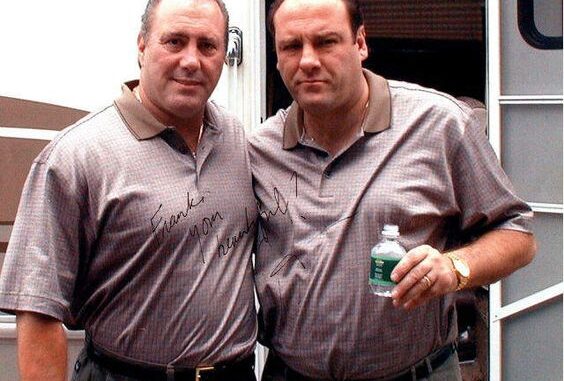
Introduction: Martin Scorsese and The Sopranos – A TV Show Rejected by a Film Legend
When The Sopranos premiered in 1999, it was heralded as a revolutionary step in television. The show transformed the landscape of modern TV, paving the way for the golden age of series like Breaking Bad, Mad Men, and Game of Thrones. But despite its success and accolades, there was one iconic figure who didn’t share the same enthusiasm—Martin Scorsese.
For a director known for creating some of the most celebrated mob films in history, including Goodfellas and Casino, you’d expect Scorsese to be on board with The Sopranos. However, the legendary filmmaker has made it clear that he didn’t quite embrace the show. But why? In this article, we’ll explore the intriguing reason why Martin Scorsese, a man synonymous with mob culture in cinema, never warmed up to The Sopranos and what this reveals about both the show and the changing landscape of television.
Scorsese and the Mob: A Deep, Personal Connection
To understand Scorsese’s reaction to The Sopranos, it’s crucial to first examine his long history with mob stories. Scorsese’s career is built on his exploration of organized crime, particularly through films like Mean Streets (1973), Goodfellas (1990), and Casino (1995). These films became some of the most iconic representations of Italian-American mafia culture, rooted in realism, moral complexity, and intense character studies.
1. A Life Spent with Mob Stories
Scorsese’s connection to the mob isn’t just professional; it’s deeply personal. His father and uncles were involved in the Italian-American community, and he grew up in the midst of its cultural complexities. Scorsese’s portrayal of the mafia has always been grounded in a desire to depict the nuances of Italian-American life, the struggles, and the dualities of honor and violence.

2. Why Mob Movies Are Personal for Scorsese
For Scorsese, the mob films he’s directed are about more than just crime and violence; they’re about identity, legacy, and the human condition. His films show the internal battles faced by mobsters, torn between loyalty to their families and the ruthlessness of their world. This is something that The Sopranos also tries to explore, but in a very different medium.
The Sopranos: Redefining TV with the Mob Genre
The Sopranos changed the game for television, offering a fresh, complex look at the mafia, crime, and family dynamics through the eyes of Tony Soprano, a mob boss trying to balance his criminal empire with his personal life. The show combined character-driven drama with the tension of a high-stakes crime world, captivating viewers for six seasons.
1. The Genius of The Sopranos
David Chase’s writing, along with James Gandolfini’s portrayal of Tony, made The Sopranos a milestone in television history. The show explored themes of identity, morality, family, and mental health, showing Tony not just as a mob boss but as a man struggling with his demons.
2. The Mob Genre in TV: New Dimensions
Where Scorsese’s mob films are gritty, sharp, and often deal with the violent consequences of mob life, The Sopranos turned the lens inward. Tony’s therapy sessions, his mental health struggles, and his relationships with his family were just as important as the violence and crime in his world. This made the show much more layered and introspective than the typical mob films Scorsese was known for.
Scorsese’s Initial Thoughts on The Sopranos
Given Scorsese’s legacy in the mob genre, it’s natural to wonder why he didn’t embrace The Sopranos—after all, it was breaking ground in ways that had never been done before on television.
1. The Slow Burn of TV vs. The Instant Impact of Film
One reason Scorsese didn’t connect with The Sopranos might be due to the nature of television itself. Scorsese, a filmmaker by trade, is used to creating compact, intense narratives that unfold in two to three hours. Television, by contrast, is a long-form medium, one where stories slowly build over seasons, and the pacing is often more deliberate. Scorsese’s love for the immediacy of film may have made it harder for him to fully embrace a slower, episodic format.
2. The Focus on Family Over Crime
Another critique Scorsese voiced in the past was that The Sopranos focused too much on the family dynamics, particularly Tony’s struggles with his wife, Carmela, and his mother, Livia. For Scorsese, this may have felt like a departure from the darker, more morally ambiguous portrayal of mob life that he’s known for. He’s always depicted the mobsters as conflicted but not as extensively about family therapy or internalized struggles.
Why Scorsese Never Fully Accepted The Sopranos
While many critics and viewers saw The Sopranos as an innovative, genre-defying series, Scorsese’s relationship with the show is less warm. Here are a few reasons why:
1. The Over-Familiarity of the Mafia Tropes
While The Sopranos certainly provided new layers to the mafia story, Scorsese might have felt it was exploring terrain he had already covered extensively in his own films. The mob genre, after all, was his domain. For Scorsese, The Sopranos may have lacked the raw, fresh perspective that he sought when exploring crime and morality.
2. The Shift From Crime to Therapy
As a director who’s always kept the focus on the crime and the cost of living that world, Scorsese likely found The Sopranos’ focus on Tony’s therapy and personal demons as somewhat antithetical to his own approach. The therapy scenes in the show opened up new psychological dimensions to the character but may not have resonated with Scorsese, who views mobsters as products of their environment, not necessarily ones who seek redemption or introspection.
3. The Changing Landscape of Television
Television in the late 90s and early 2000s was undergoing a major transformation. With The Sopranos, TV began to evolve into a more cinematic form, but Scorsese, a purist in his own right, may not have been fully comfortable with this shift. The show’s blending of filmic techniques with long-form storytelling may have felt less like a natural progression and more like an intrusion on the art form of film he revered.
The Cultural Divide: Film vs. TV
Another key factor in Scorsese’s indifference to The Sopranos is the long-standing divide between film and television, particularly for directors like Scorsese. For many filmmakers of his generation, TV was still seen as inferior to the prestige of film.
1. The Status of TV in the Early 2000s
Before the explosion of prestige TV, television wasn’t viewed as the artistic equal of cinema. While directors like Scorsese had transformed the movie industry, TV shows were often seen as more commercial and formulaic. The Sopranos was one of the first shows to bridge this gap, but it still took time for the prestige TV era to fully take off, and Scorsese might have remained skeptical about television as a legitimate artistic medium.
The Sopranos’ Legacy: A New Era for TV
Even though Scorsese didn’t connect with The Sopranos, the show undoubtedly had a monumental impact on the TV landscape. It challenged conventions, blurred genres, and set the stage for a new wave of storytelling on television.
1. A Launchpad for Modern TV
Shows like Breaking Bad, Mad Men, and The Wire owe much of their success to The Sopranos. It proved that television could have the depth, complexity, and artistic merit of film, and in many ways, it started the trend toward “TV as cinema.”
2. Redefining Mob Stories
The Sopranos didn’t just bring a fresh take on mob stories—it turned them on their head. The focus on family, psychology, and personal struggles gave the genre new life and depth, showing that there was more to the mafia than just crime and violence.
Conclusion: The Sopranos – A Show Ahead of Its Time
Martin Scorsese may not have warmed to The Sopranos, but the show undeniably changed television forever. Through its exploration of the mob genre, its complex characters, and its blending of film and television techniques, The Sopranos proved that TV could be more than just entertainment—it could be an art form.
As we continue to watch the evolution of TV storytelling, it’s clear that the groundbreaking work done by